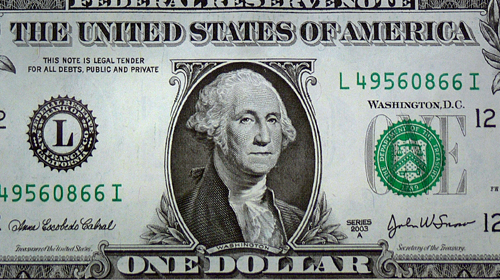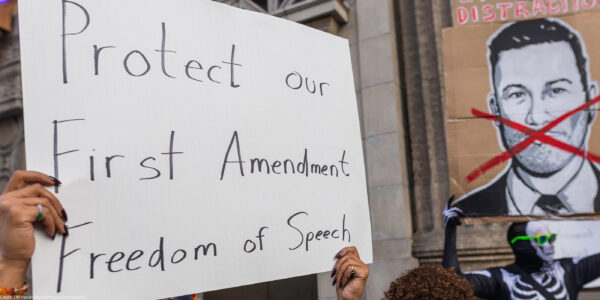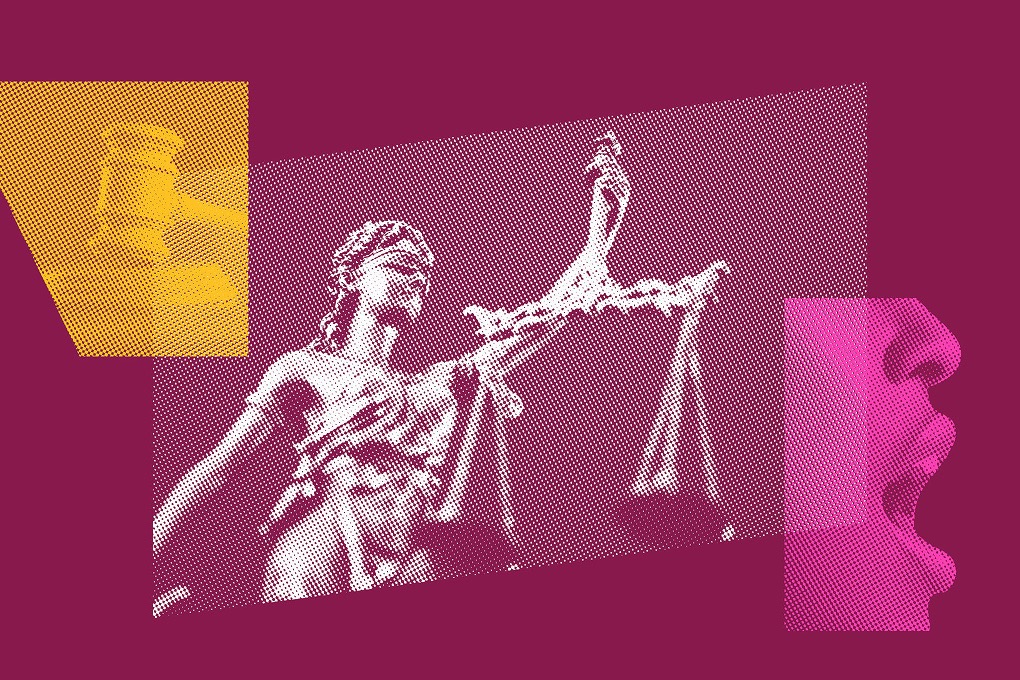
Sen. Lisa Murkowski (R-Ala.) and Sen. Ron Wyden (D-Ore.) unveiled a new bill this week requiring all groups that spend money independently of campaigns, candidates, or parties to influence a federal election or nomination to disclose their donors. Although we have concerns with the bill, the senators' hearts are certainly in the right place, and they should be applauded for actively soliciting input during the drafting process from interested parties on all sides of the debate.
The "Follow the Money" Act does several things better than competing proposals like the DISCLOSE Act. For instance, it removes the disclosure requirements for ads that simply mention a candidate close to an election or primary. It also raises the threshold for reporting of direct contributions to candidates from the exceedingly low $200 to $1,000 and creates two options for groups looking to preserve donor anonymity, which are similar to existing law. Groups can either create a safe harbor account seeded by donations below $1,000 (donors to which stay anonymous), or they can create a separate account for covered spending (and only contributors to that account have to be disclosed).
Unfortunately, like all of the recent disclosure proposals, the Wyden-Murkowski bill fatally fails to clearly define the type of expenditure that would trigger disclosure. The heart of the bill is the creation of a new definition of "independent federal election-related activity expenditure," which I'm going to imaginatively call an IFERAE.
IFERAEs are defined as any expenditure that "considering the facts and circumstances, a reasonable person would conclude is made solely or substantially for the purpose of influencing or attempting to influence the nomination or election of any individual to any Federal office." The definition is not, as is usually the case, limited to just advertising and could cover independent polling, research, or messaging.
If you make IFERAEs over $10,000—no matter what—you automatically have to disclose all your donors. The only exceptions are the separate account options I mentioned above, which are certainly welcome but may not be feasible for smaller or single issue advocacy groups who often have to rely on large donations from fewer contributors. There is also a waiver for donors who contribute less than $5,000, which may be hard for groups to secure in practice.
The vagueness of the IFERAE definition creates two main problems. First, this bill is going to cover a lot more political activity and speech. It almost certainly will sweep in pure "issue ads" by groups like the ACLU, the Sierra Club or the Humane Society. For instance, a similarly vague provision in the 1971 campaign finance law was cited in the decision by the New York Times to refuse to publish an advertisement by the ACLU in the New York Times criticizing President Nixon for his position on busing. The ad itself did not call for Nixon's defeat, but the Times feared that its harsh tone would open it to liability for publishing an illegal campaign ad.
Second, the bill is going to open the door to selective enforcement. Groups critical of the government or who support unpopular causes will find that their expenditures are more likely to be covered by the definition.
There is no question the public has a legitimate interest in knowing who is corruptly spending scads of cash trying to influence voters and lawmakers. But the public should also be able to anonymously support advocacy organizations that engage on the issues of the day, even if they praise or criticize candidates or nominees for their positions on those issues. Absent anonymity, some donors—on both the left and the right—will simply not donate out of the legitimate fear they will be harassed or retaliated against for their advocacy.
Importantly, it's not clear—and it needs to be clear—that anonymous political donations to independent issue advocacy groups are actually corrupting. During the last election cycle, there was significant outcry over so-called "dark" money: political expenditures by groups that do not publicly disclose their donors. But, when you look at the facts, dark money made up a relatively small percentage of all outside spending, and even groups that support expanded disclosure find that it had little concrete effect on the ground. In many tight Senate races, for instance, it was actually the incumbency advantage in direct fundraising by Democrats that made the difference. Before we vastly expand disclosure requirements for issue advocacy, we need a record of real harm, which we just don't have right now.
The campaign finance issue is hard because reform is actually being pushed in response to a real problem: large, self-interested agglomerations of wealth that can and do wield an outsized influence in the political process. That's something that we need to address, but the real question is how. As Justice Brandeis famously said, "[t]he greatest dangers to liberty lurk in insidious encroachment by men of zeal, well-meaning but without understanding." In other words, sometimes the urge to just "do something" about a problem results in serious unintended consequences. Donor disclosure is one of the areas where we need to be very careful of those consequences.
Learn more about campaign finance reform and other civil liberty issues: Sign up for breaking news alerts, follow us on Twitter, and like us on Facebook.


